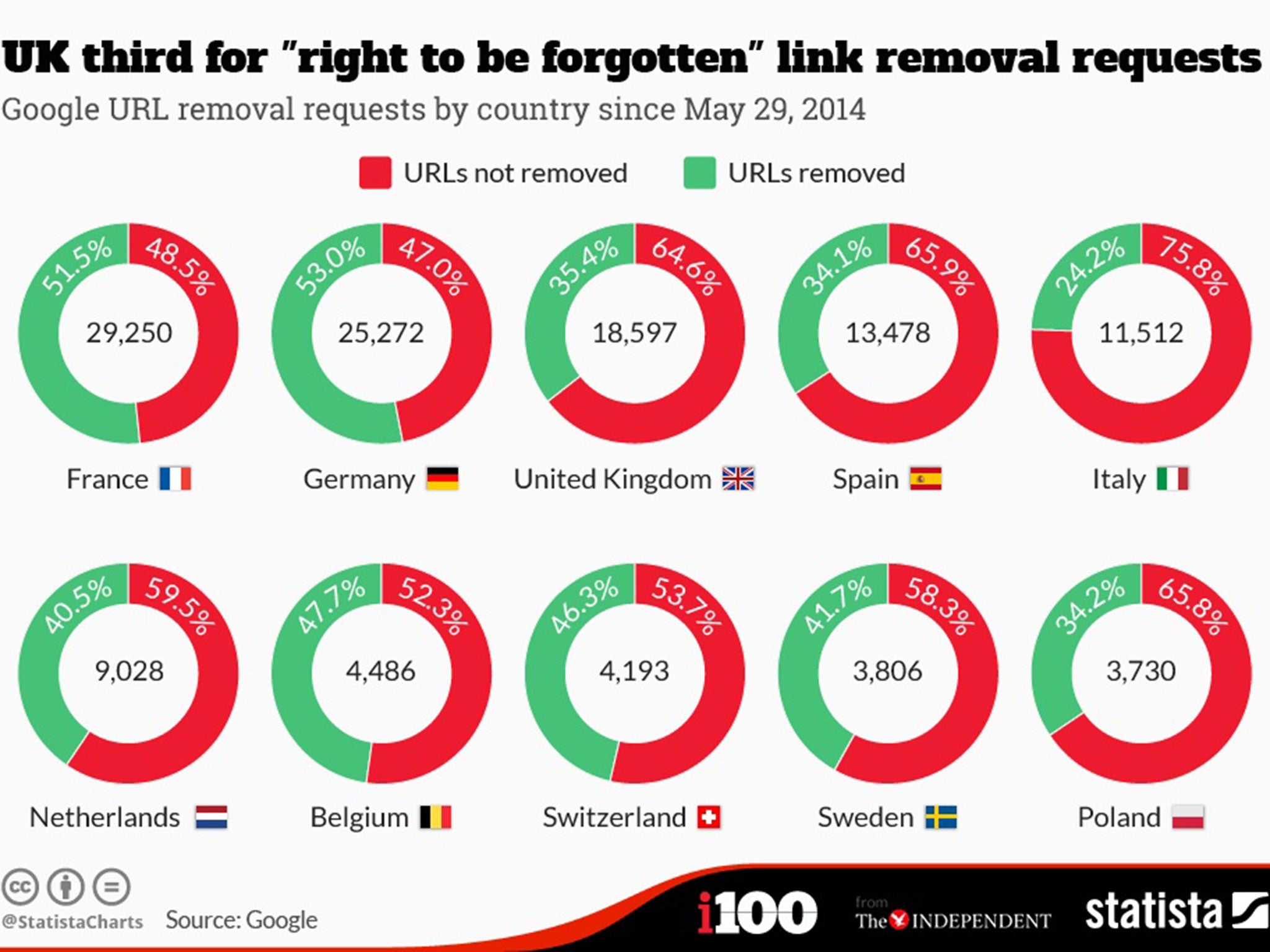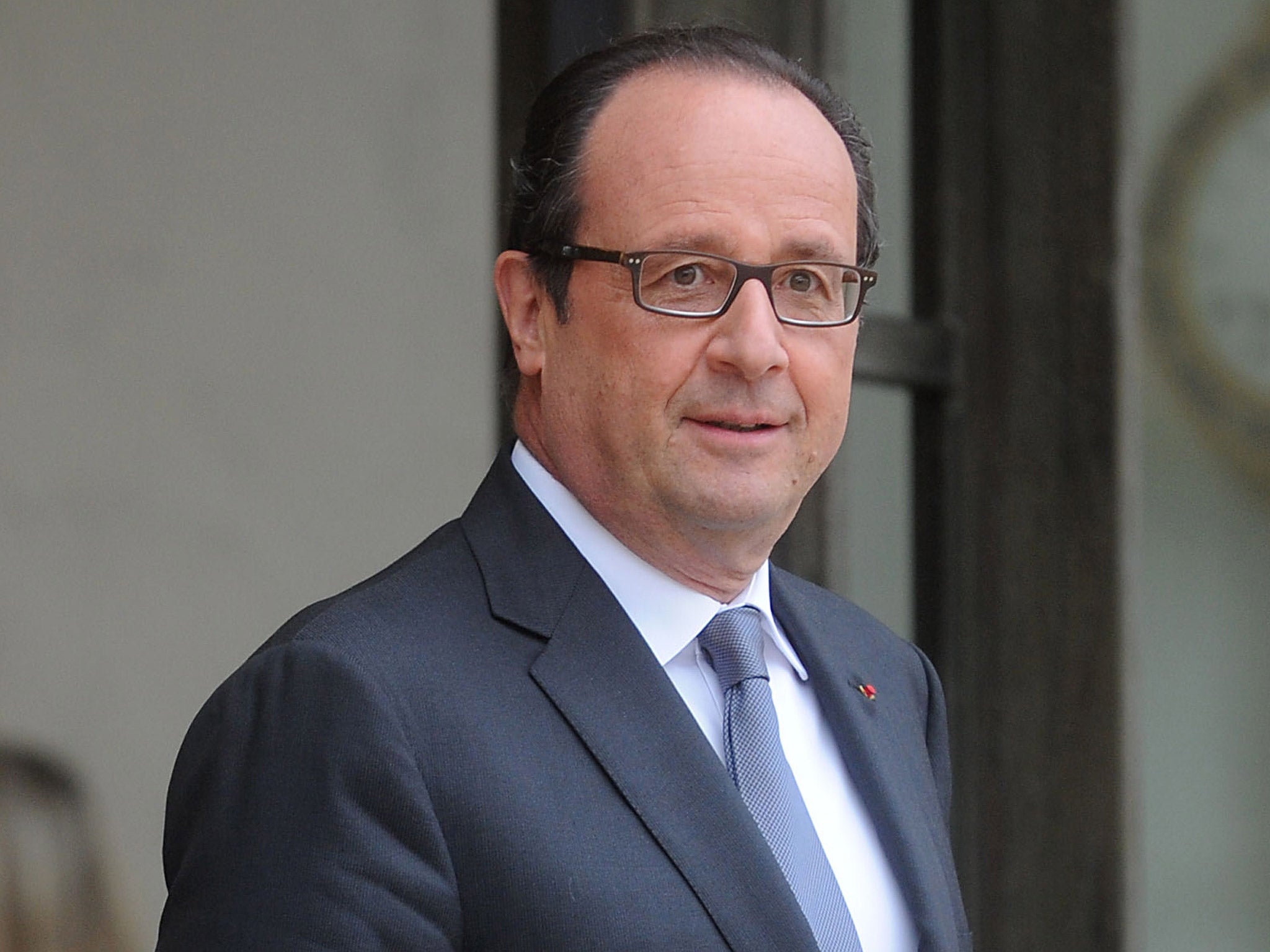Google's right to be forgotten: Do the French have the most to hide?
French citizens have made 29,250 link removal requests - more than any other country in Europe

Your support helps us to tell the story
From reproductive rights to climate change to Big Tech, The Independent is on the ground when the story is developing. Whether it's investigating the financials of Elon Musk's pro-Trump PAC or producing our latest documentary, 'The A Word', which shines a light on the American women fighting for reproductive rights, we know how important it is to parse out the facts from the messaging.
At such a critical moment in US history, we need reporters on the ground. Your donation allows us to keep sending journalists to speak to both sides of the story.
The Independent is trusted by Americans across the entire political spectrum. And unlike many other quality news outlets, we choose not to lock Americans out of our reporting and analysis with paywalls. We believe quality journalism should be available to everyone, paid for by those who can afford it.
Your support makes all the difference.Google received more "right to be forgotten" requests from France than anywhere else in Europe, it has been revealed.
The country, regularly described as having strict privacy laws, made more than 29,000 link removal requests, more than half of which were successful.
Google introduced the request process following a European Court of Justice ruling in May that links to incomplete and outdated data should be removed upon request from searches within the EU.
The move has sparked concerns over censorship of material which is accurate and in the public domain.
A total of 51.5 per cent of the 29,250 "right to be forgotten" requests made in France since May 29 this year saw URLs removed, the search engine has revealed.
Germany was the country with the second highest number of requests, with 25,272 - 53 per cent of which were successful.

Britain had the third highest number of requests, although 64.6 per cent of those were unsuccessful.
France is often described as having strict privacy laws, with a clause in the French Republic's civil code declaring: "Everyone has a right to respect of their private life."
While the French media has traditionally been known for having considered the personal lives of senior politicians off-limits, there has been a number of cases in recent years which appear to have challenged this premise.
In March, French magazine Closer was ordered to pay damages of €15,000 (£12,400) to the actress Julie Gayet after it published photos which it said showed President Francois Hollande leaving her apartment following a romantic affair.

The images, which showed a man wearing a helmet leaving a Paris flat on a motorbike, made headlines around the world and days later saw Mr Hollande, 60, break off his relationship with partner and French First Lady Valerie Trierweiler.
Ms Trieweiler, 49, herself won an invasion-of-privacy lawsuit earlier that same month against the same magazine, after they ran pictures taken while she was on holiday in Mauritius in February.
In 2012, meanwhile the magazine was sued by the Duke and Duchess of Cambridge after it published topless pictures of Kate taken when the couple were on holiday.
The above graphic was supplied by Statista.com